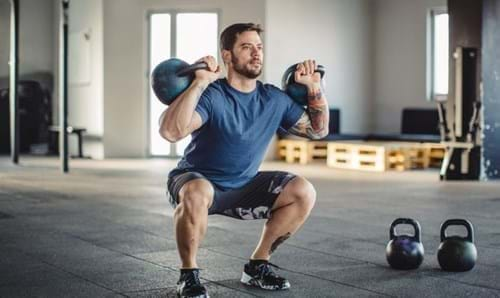Table of Contents
- Introduction: The Importance of Stamina After 60
- Habit 1: Regular Cardiovascular Exercise for Endurance
- Habit 2: Strength Training to Maintain Muscle Mass
- Habit 3: Fuel Your Body with Balanced Nutrition
- Habit 4: Stay Hydrated for Consistent Energy
- Habit 5: Improve Sleep Quality for Better Recovery
- Habit 6: Stress Management to Preserve Stamina
- Conclusion: A Comprehensive Approach to Boost Stamina After 60
1. Introduction: The Importance of Stamina After 60
As we age, our stamina naturally declines, and simple daily activities can feel more challenging. However, it’s possible to increase your stamina and energy levels after 60 by adopting the right habits. Maintaining stamina as you age is essential not only for physical health but also for mental well-being. Higher energy levels allow you to remain independent, improve mobility, and enjoy a fuller, more active lifestyle. By focusing on consistent exercise, balanced nutrition, hydration, and stress management, you can increase your endurance and maintain vitality. These six habits will help you feel better every day, no matter your age.
2. Habit 1: Regular Cardiovascular Exercise for Endurance
Cardiovascular exercise is one of the best ways to boost stamina, improve heart health, and increase lung capacity. Activities like walking, swimming, biking, or dancing help increase blood circulation, lower blood pressure, and enhance overall cardiovascular function. For seniors, the goal should be at least 150 minutes of moderate-intensity aerobic activity per week. That could translate into 30 minutes of brisk walking five days a week, which is enough to strengthen the heart, increase energy levels, and improve endurance. Regular cardio workouts improve circulation, making your muscles more efficient in receiving oxygen, which helps you last longer throughout the day without feeling fatigued.
3. Habit 2: Strength Training to Maintain Muscle Mass
Strength training is critical for preserving muscle mass and increasing overall strength, which directly affects stamina. As we age, we naturally lose muscle, which can impact our ability to perform daily tasks and reduce energy levels. Incorporating strength training exercises two to three times a week helps prevent muscle loss, improves balance, and supports bone health. Whether it’s lifting weights, doing resistance band exercises, or engaging in bodyweight movements like squats and push-ups, strengthening the muscles enhances endurance and energy. Building muscle mass also helps with weight management, another crucial aspect of maintaining stamina as you age.
4. Habit 3: Fuel Your Body with Balanced Nutrition
What you eat plays a key role in determining how much energy you have throughout the day. For seniors, balanced nutrition is essential for maintaining stamina and supporting overall health. Focus on eating a variety of nutrient-dense foods that provide vitamins, minerals, fiber, and healthy fats. Protein is particularly important as it supports muscle repair and maintenance, which directly impacts stamina. Include lean proteins like chicken, fish, eggs, and legumes, as well as healthy fats from sources like olive oil, nuts, and avocados. Whole grains, fruits, and vegetables provide steady energy throughout the day. Avoid processed foods and excessive sugar, which can cause energy crashes and hinder stamina.
5. Habit 4: Stay Hydrated for Consistent Energy
Dehydration is a common issue among older adults, and it can lead to fatigue, dizziness, and decreased stamina. Proper hydration is essential for maintaining energy levels and supporting physical performance. Water plays a key role in regulating body temperature, supporting digestion, and improving muscle function. Aim for at least 8 cups of water daily, and more if you’re engaging in physical activity. In addition to water, you can stay hydrated with herbal teas, or by consuming water-rich foods like cucumbers, watermelon, and oranges. Proper hydration helps maintain stamina by ensuring that your muscles and organs function optimally, preventing energy dips that can occur with dehydration.
6. Habit 5: Improve Sleep Quality for Better Recovery
Sleep is one of the most important aspects of stamina and overall health. During sleep, the body repairs itself, builds muscle, and restores energy, all of which are vital for increased endurance. Seniors often experience disruptions in sleep patterns, which can lead to fatigue and reduced stamina. Improving sleep hygiene is key for better recovery and energy levels. Establish a regular bedtime routine, limit screen time before bed, and ensure your sleep environment is cool, dark, and quiet. Aim for 7-9 hours of uninterrupted sleep each night. Good sleep not only boosts physical stamina but also improves mental clarity and mood, allowing you to feel more energized and refreshed during the day.
7. Habit 6: Stress Management to Preserve Stamina
Chronic stress is one of the biggest energy drainers, especially as we age. Long-term stress can lead to sleep disturbances, anxiety, and reduced stamina, making it harder to stay active and energized. Effective stress management techniques, such as deep breathing, meditation, yoga, or simply taking time for hobbies and relaxation, can significantly boost your stamina. Regular physical activity, such as walking or swimming, also reduces stress by releasing endorphins, the body’s natural mood enhancers. Managing stress is essential not just for mental health but also for physical energy. Practices like mindfulness and journaling can help reduce the overall stress load, ensuring you maintain your stamina over time.
8. Conclusion: A Comprehensive Approach to Boost Stamina After 60
Increasing stamina after 60 requires a combination of physical activity, proper nutrition, hydration, sleep, and stress management. By incorporating these six habits into your daily routine, you can improve your energy levels, enhance endurance, and enjoy a more active and fulfilling life. It’s important to remember that stamina isn’t built overnight—it’s a gradual process that requires consistency and dedication. Start by incorporating small changes, and over time, you’ll notice significant improvements in your stamina, mobility, and overall health. With the right approach, you can maintain a high quality of life well into your later years.



You must be logged in to post a comment.